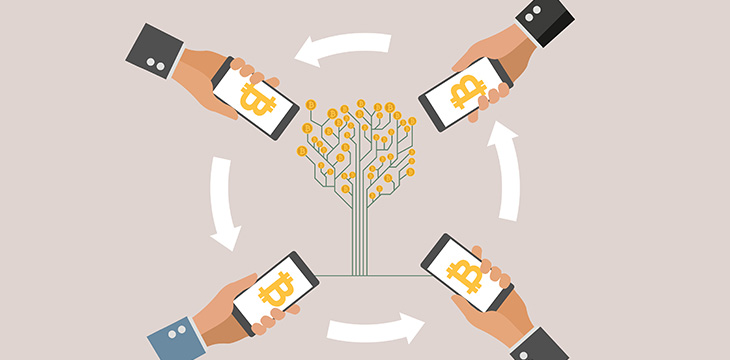|
Getting your Trinity Audio player ready...
|
Does the word “tokens” remind you of ICOs, pump and dump trading, and the crypto wild west? Like so many other blockchain promises of the past, tokens are an important technology with a damaged reputation thanks to get-rich-quick schemes, hype, and misunderstanding. When Bitcoin gets real again in 2020 with the Genesis upgrade, it will again be possible to fulfill the promise. Here’s a look at what went wrong, and how Bitcoin’s professionalization can deliver a far better future.
Tokenization on the Bitcoin SV (BSV) blockchain will be a featured track at CoinGeek Conference London in February, coinciding with the Genesis release. Unlimited scalability and long-term viability mean tokens are back—though this time, it’ll be done properly.
Put simply, a token is an immutable, digital record of ownership. Based on smart contracts, they enable any agreement to be recorded and even enforced without the use of paper documentation, or middlemen like lawyers and notaries. Low cost and simplification make binding contracts accessible to all, not just business owners and the wealthy.
They can also cover any agreement of any size: from corporate takeovers and governance, government and financial services, loans, shares, employment, supply chain management, down to everyday actions like consumer purchases, loyalty points and concert tickets. They could someday even manage your identity, while protecting privacy.
Participants in a tokenized smart contract can be companies, governments or individuals… and they don’t even need to be human. Anyone (or anything) capable of engaging in commerce with obligation to another party.
But first, let’s look at why “tokenization” in 2020 means something much more than it did in 2017.
What tokens aren’t (or shouldn’t be)
Blockchain tokens got a bad rep, probably deserved, during the ICO craze of 2017—which bled into 2018 and still continues to some extent today. Inspired by Ethereum‘s ERC-20 tokenization technology and headlines of companies raising from US$35 million (Brave’s BAT) to $4 billion (Block.one/EOS), the bandwagon soon got full.
Sure, people talked about the proper way tokens should be used. Ever since the old days of Colored Coins in the early 2010s, the blockchain industry has described legitimate use cases. Unfortunately, it got drowned out in the noise when people realized you could make billions by selling play money to gullible investors.
There were token promises (pun intended) that ICO units purchased would “have utility within the ecosystem” of each blockchain project they supported—usually as a form of loyalty point or payment. However, use of the platform would need to become widespread before the tokens could be used for this purpose. Some do serve this function, but it soon became clear the “utility” promise was an empty one in many cases, an attempt to appease regulators as hastily-created startups engaged in crowdfunding with no legal obligations to token owners. Most of them even mentioned in the fine print that tokens would not entitle buyers to company shares or future dividends.
Getting listed on exchanges like Binance or Bittrex meant tokens offered little more than speculative profits—and even then, only if you pumped and dumped them in the first 48 hours, after which most of the values and liquidity plummeted and never rose again.
Regulators in the U.S. and China, where most funds were raised (despite many supposedly forbidding US residents from buying) saw through the ruse. The CFTC and SEC declared blockchain tokens could be regulated securities, and Chinese police in 2017 shut down an entire ICO conference midway through. The term “ICO” became synonymous with unregulated fundraising, lost money, and failed projects (many of which had limited prospects or never really existed in the first place).
The case for legitimate tokenization on Bitcoin
Despite all this, blockchain tokens—issued on a long-term functional blockchain—remain a viable and promising technology if used properly and legally. It is inadvisable to purchase any token purely for speculative trading. However if a token represents a contract of some kind, e.g. ownership or an actual obligation, and is backed by a legitimate issuer, there are boundless use cases.
That’s where Bitcoin comes in. The Bitcoin SV blockchain’s massive transaction capacity, high speed, low fees and long-term “source of truth” ledger could usher in a new era of efficiency in almost all human interactions.
Tokenized is one company in the BSV ecosystem working on a smart contract platform that anyone can use. CEO James Belding gave a presentation at CoinGeek in Toronto, which we recommend for a quick overview of what tokens on the Bitcoin blockchain can do.
Everyone can benefit from tokenization, Belding said. Companies, non-profits, partnerships, individuals, even families.
ECDSA (digital) signatures can legally be used in place of any handwritten signature, on a permanent universal ledger. They’ll have their own governance rules and even enforcement automated. This drastically reduces costs and increases speed—the same platform that manages your tickets to a music festival could transfer ownership of a multimillion dollar piece of real estate in a few seconds, settled.
Governments could someday even issue visas and passports electronically, manage welfare programs and healthcare, or run elections with lower levels of fraud than postal voting. Then there’s the much-talked-about prospect of central banks issuing national fiat currency tokens—something that, according to Belding, “is going to happen sooner than people think.”
One criticism of tokenizing real-world, or “off-chain” events on a blockchain is that the blockchain itself cannot enforce non-digital rules. For example, a thief could steal a valuable artwork or a corrupt government could confiscate property, no matter what the smart contract says. However digitizing agreements certainly reduces the need for physical documents (which can more easily be forged, lost or stolen) and Bitcoin is intended to work within human-legal frameworks, where rule-of-law exists.
This way, blockchain tokenization works to complement human law rather than attempt to replace it. And by making it cheaper and easier, it makes legal agreements of any size available to all. That’s the main promise of tokens in 2020—now the race is on to build the best and most widely-used platforms to manage them.

 12-24-2025
12-24-2025 




